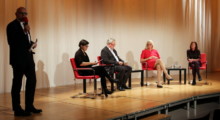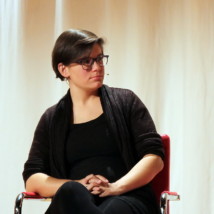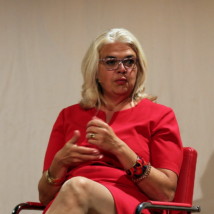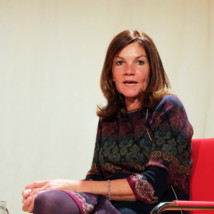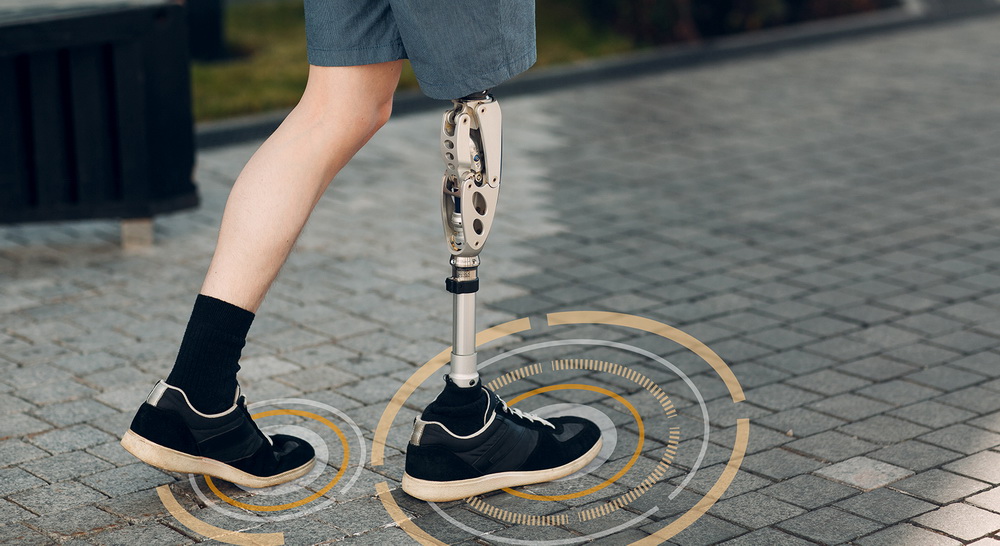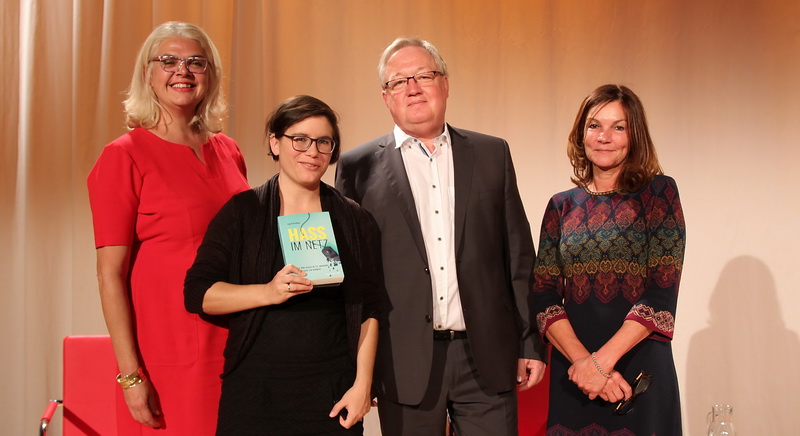
Hate on the Net – What to do Against Hate Speech and Mobbing Online?
Fake news is spread six times faster and wider than factual news that is true. People are being abused, threatened and attacked online. They are bullied and misinformed. The internet has become a verbal battlefield. Every day, fake pictures, manipulated quotations and alleged “facts” emerge. The language in social media is becoming more and more radical. Hesitive online comments encourage aggression and have serious consequences for those affected. As part of the “Digital Life” series of events, we invited three experts to discuss possible solutions at the ORF Salzburg State Studio on October 18th:
Ingrid Brodnig, a journalist and author, showed that hatred and aggression on the net not only hits celebrities. Many are unaware that they make a punishable statement. After all, everyone’s supposed to be talking like this … The “invisibility on the Net” leads people to express something online that they would never say to someone offline. Numerous scientific studies show that even the presence of a webcam alters communication because eye contact makes a big difference. Another fact is that rogues get more attention: The harder and more emotionally worded and the more swear words, the more likes gets a posting. The Salzburg Vice Mayor Anja Hagenauer reported from the perspective of those affected: Without her own fault, she became a target for hate comments. Only with the help of an employee has she survived this hot phase well – to protect herself, she read the comments very much later. Ingrid Rieser of the Crisis Intervention Team of the Red Cross explained what unreasonable postings in victims and their families can trigger.
Possible Solutions
The experts found a whole range of possible solutions: on the one hand, laws should be reviewed because many in Germany are not adapted to the digital challenge. Civil courage is also in demand in the digital world and is often bitterly missed there. According to Brodnig, “I do not think it’s OK to deal with person XY” would help a lot , rather than a pointed, sophisticated commentary, because most of the time the victim stays alone. In some cases, according to Brodnig, humor is not down to earth.
The self-control of the social media is an important point in dealing with fake news and hate mailing. However, there is still very little insight to what extent this is implemented by the different operators. The training of media literacy plays an important role, which is already being implemented very well in many schools, inter alia in cooperation with the police. However, a training of the parents would be needed. Ingrid riser pointed out the importance of dignity. Because dignity can be learned. And a young person with a good self-respect can also respect the dignity of other people.
Event Series „Digital Life“
“Digital Life” is a series of events on the Digital Salzburg platform. This series of events aims to raise awareness of new challenges in the increasingly digital age. The platform Digital Salzburg is a joint project of the University of Salzburg, University of Applied Sciences Salzburg and the State Research Institute Salzburg Research. More information about the platform can be found here.
